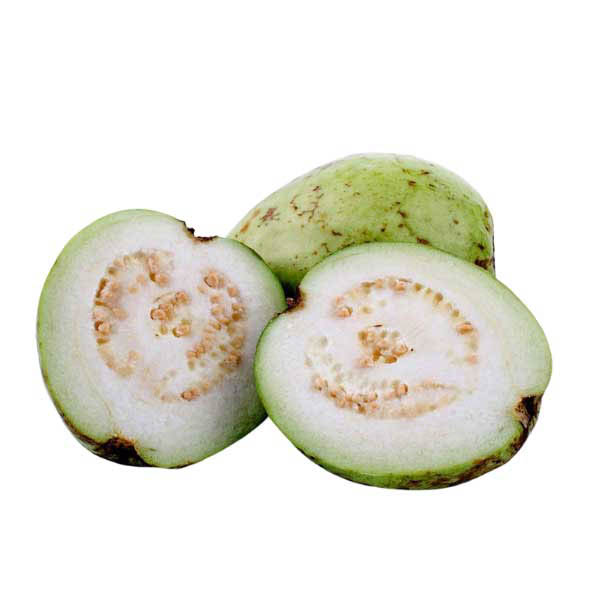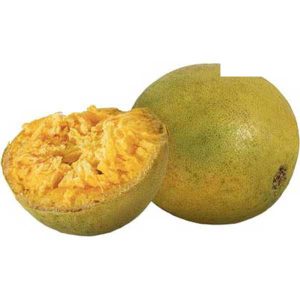Description
Bangkok Giant, Horana white, Horana Red
Wet and Intermediate zones
Central and South American
Mellow and mildly sweet
Guava helps treat diarrhoea, dysentery, sprains, intestinal haemorrhages, coughs, pulmonary disorders, cerebral ailments, cachexia, wounds, skin ailments and epilepsy. According to studies, it possesses beneficial flavonol glycosides that fight type II diabetes mellitus, essential oils with anti-inflammatory properties and anti-cancer properties due to its ability to induce cell death and reduce cancer cell proliferation in certain types of tumours. A 2012 study published in the European Review for Medical & Pharmacological Sciences confirms guava’s gastro protective benefits and ulcer healing properties.
Around the 1520s, Europeans discovered guavas crops in the Caribbean. Shortly thereafter, Portuguese explorers brought the fruit and many others to Goa. Spanish and Portuguese voyagers are also credited with guava’s introduction to Africa and parts of Southeast Asia. Sailors of the high seas valued the fruit for its vitamin C, as this nutrient debilitating scurvy at bay.
For a tropical smoothie, blend with strawberries and mint, or add guava chunks with bananas, mangos and pineapple. Guava pulp works well in lemonade recipes too! Prepare a bowl of Guava soup by adding 2 cups of fresh guava juice, Tabasco, mint leaves, sugar, pepper. Dash of vodka, optional, if you are in the mood for tad bit alcohol! Cook the guava flesh with water, add sugar and preserve for a delicious jelly that is also awesome as a layer for your cakes or pastry filling.


